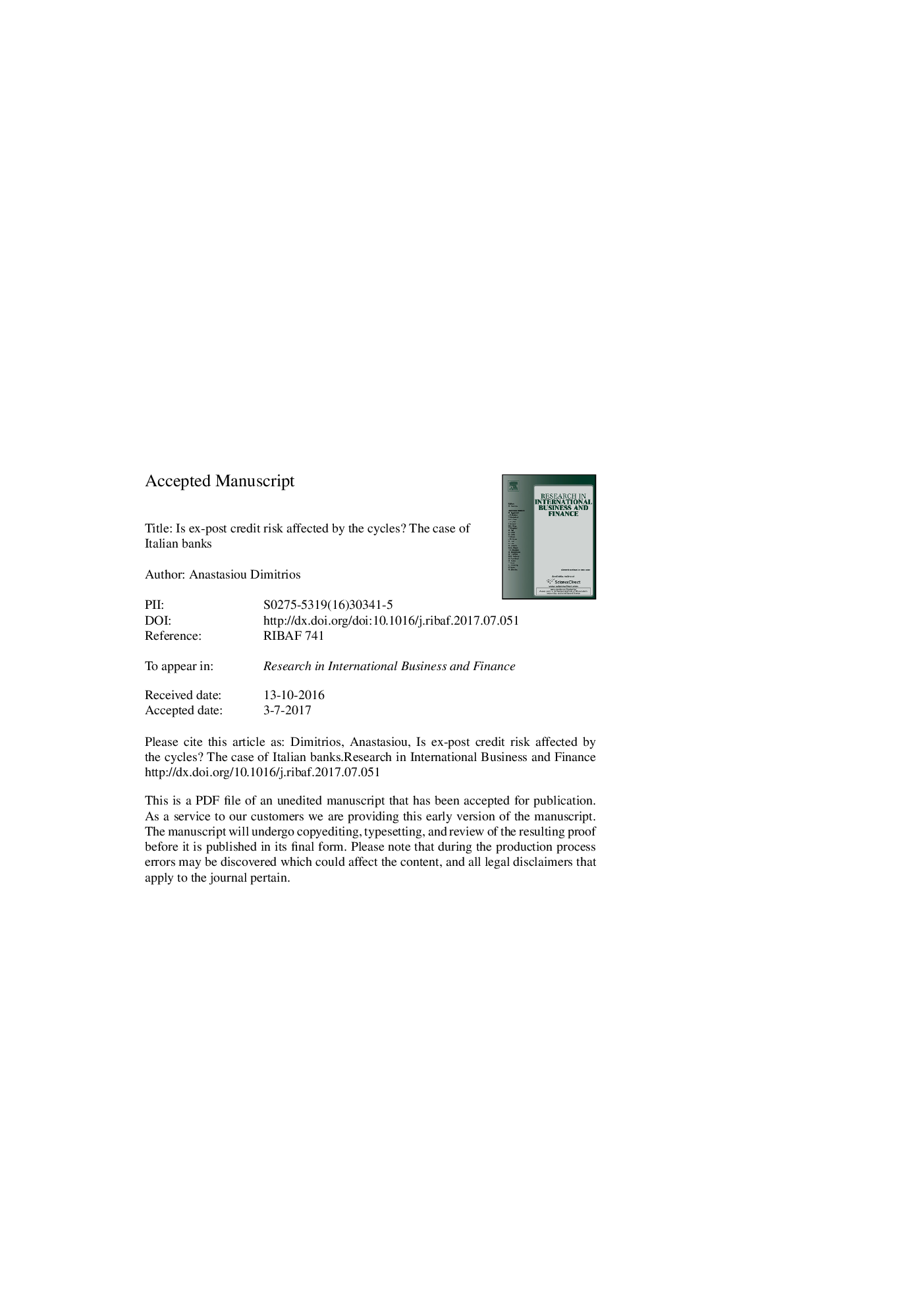| Article ID | Journal | Published Year | Pages | File Type |
|---|---|---|---|---|
| 5107264 | Research in International Business and Finance | 2017 | 22 Pages |
Abstract
The objective of this research is to empirically examine if both credit and business cycle affect the ex-post credit risk (i.e. non-performing loans) in the banking system of Italy for the period 1995Q1-2014Q1. The increase in NPLs post-2008 has put into question the robustness of many European banks and the stability of the whole sector. It still remains a serious challenge, especially in Italy which is one of the countries that hit by the financial crisis. By employing fixed and random effects and a dynamic GMM estimation as econometric methodologies I find results that underline common causes for NPLs. Higher NPLs in Italy are mostly due to worse macroeconomic conditions (i.e. bad phase of business cycle) and due to excess credit. Through a Granger causality test, my arguments found even more support. Such findings can be helpful when designing macro-prudential as well as NPL resolution policies.
Keywords
Related Topics
Social Sciences and Humanities
Business, Management and Accounting
Business and International Management
Authors
Dimitrios Anastasiou,
